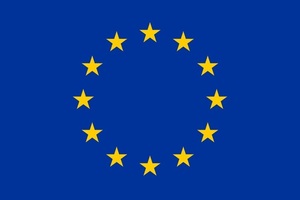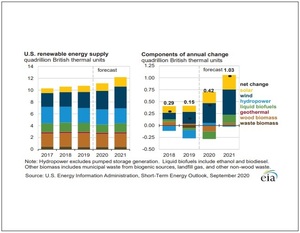EU vote allows biomass to continue to help meet RED goals
Energy Disrupter
ADVERTISEMENT
Members of the European Parliament (MEPs) on Sept. 14 voted in favor of proposals for a revised Renewable Energy Directive (REDIII). The proposals aim to raise the share of renewables in the European Union’s final energy consumption to 45 percent by 2030. They also address the use of woody biomass.
The MEPs decision, in part, allows biomass energy, including primary woody biomass, to continue counting towards the renewable energy targets. MEPs, however, also adopted amendments calling for phasing down the share of primary wood biomass counted as renewable energy.
The proposals define primary wood biomass to include all roundwood felled or otherwise harvested or removed. This includes all wood obtained from removals, such as the quantities removed from forests, including wood recovered due to natural mortality and from felling and logging. It also includes all wood removed with or without bark, including wood removed in its round form, or spit, roughly squared or in other forms, such as branches roots and stumps, along with wood that is roughly shaped or pointed. The definition of primary wood biomass does not include woody biomass obtained from sustainable wildfire prevention measures in high-risk fire prone areas, wood biomass obtained from road safety measures, and woody biomass extracted from forests affected by natural disasters, active pests or diseases to prevent their spread, while minimizing wood extraction and protecting biodiversity.
Under the proposal, the energy share from solid biomass fuels derived from primary woody biomass cannot exceed the share of the overall energy consumption of the average of such fuel in 2017-2022, based on the latest available data.
Bioenergy groups are welcoming the adoption of the REDIII but stress that the new definition of primary woody biomass raises some concerns.
Bioenergy Europe stressed that biomass will play a more crucial role than ever in achieving the new REDIII targets and is criticizing the lack of support for primary wood biomass. “This new measure will make bioenergy from primary woody biomass the only renewable source not eligible for support, creating an uneven playing field with other solutions, and this is not acceptable,” the group said in a statement. “When comparing subsidies per unit of energy produced, biomass receives significantly lower support than other renewable sources, not to mention fossil energy. Given that sustainable bioenergy is almost exclusively sourced, produced and dispatched within the EU, the subsidies which the sector receives are being used efficiently to support the EU economy and to create jobs. Removing these subsidies without eliminating support to fossil fuels will send troublesome signals to the market slowing decarbonization.”
Bioenergy Energy is also criticizing Parliament’s decision to cap the share of primary wood biomass relative to the total biomass used. This limit would be set at to the share of primary woody biomass from 2017-2022. The group said caps and phase-downs are counterproductive at a time when the EU needs to mobilize all of its available resources.
“Succeeding in the energy transition, becoming more energy independent is only possible if we don’t restrict any renewable energy for wrong reasons,” Jean-Marc Jossart, secretary-general of Bioenergy Europe. “Decision makers should trust more scientific evidence. Primary biomass comes from sustainable forest management practices that are necessary for our forests to stand challenging climate pressure.”
“Today’s result is a clear signal that biomass is and will remain a part of the EU’s renewable energy future, and we welcome this,” said Irene di Padua, policy director at Bioenergy Europe. “The proposal to exclude primary woody biomass from renewables would have been a missed opportunity, as primary woody biomass represents 20 percent of the total renewable energy mix in the EU. Considering the effects it would have, not only on wood-related sectors, but also on energy security for the entire EU, this would have been a very worrisome outcome.” As stressed today by the rapporteur, MEP Markus Pieper during his press conference, “we need wood-based biomass for energy in order to achieve the energy transition.”
The U.S. Industrial Pellet Association also said it is encouraged by the EU’s continued recognition of primary wood biomass as an important energy source, and allowing for its growth, but is advocating against provisions limiting the use of biomass. “Europe faces immense challenges with energy security and affordability as it seeks to accelerate its transition away from fossil fuels,” USIPA said in a statement. “Primary woody biomass provides 20 percent of the EU’s renewable energy, and is an indispensable solution for addressing all of these issues. It will be critical to reach a compromise in trilogue that excludes provisions that would arbitrarily limit the contributions of biomass – in particular, unnecessary restrictions around the use of primary woody biomass.”
U.S.-based wood pellet producer Enviva is welcoming the EUs continued designation of primary woody biomass as a renewable energy source, calling it a critical step in the right direction toward more low-carbon, drop-in alternatives to fossil fuels for power and heat generation.
“All serious pathways for achieving climate neutrality show that the use of bioenergy must and can be increased sustainably,” said Thomas Meth president of Enviva. “The EU Commission’s own impact assessment for RED III outlines a need to increase bioenergy use from 2030 to 2050 by an average of 69 percent to provide vital grid balancing services, high temperature heat for industry, advanced biofuels, and negative emissions.”
“A failure to increase woody biomass use in the EU would mean failure in meeting climate goals, increased cost to EU consumers, and further disruption to security of energy supply on the brink of winter, when bioenergy makes up 25 percent of European heating supply and when incremental investments in more woody biomass infrastructure are desperately needed,” Meth added. “At Enviva, we are encouraged by the progress made and are confident that a pragmatic and reasonable outcome will be reached.”
Additional information is available on the European Parliament website.
















